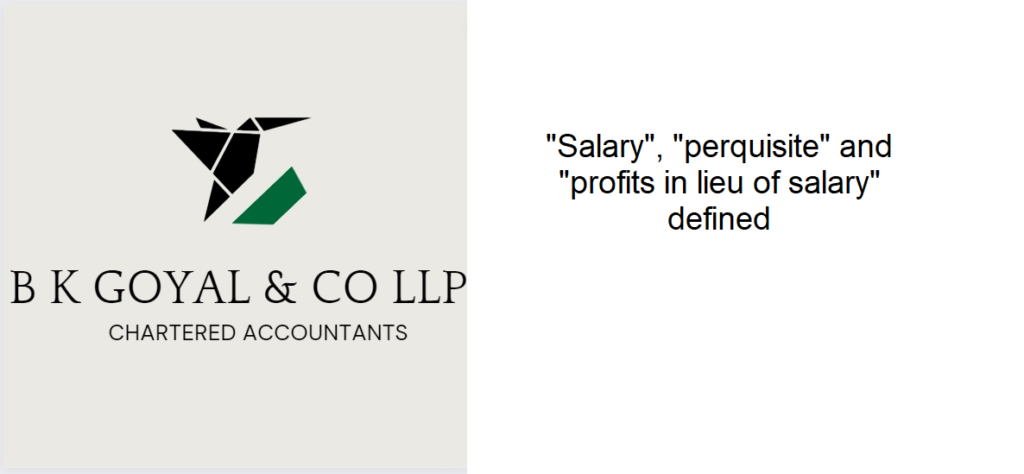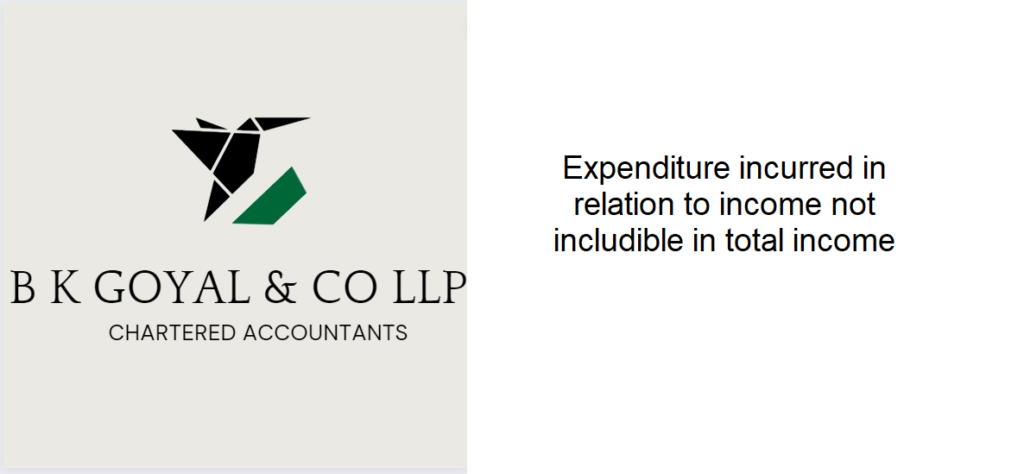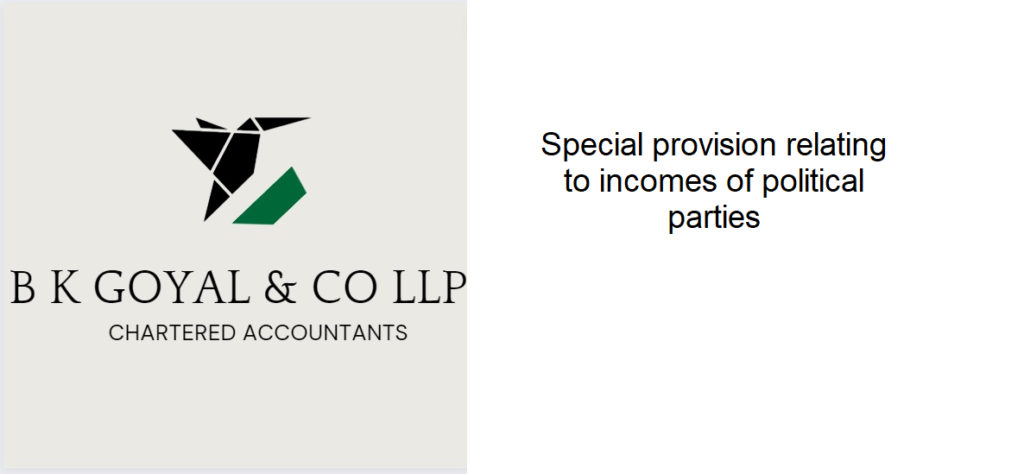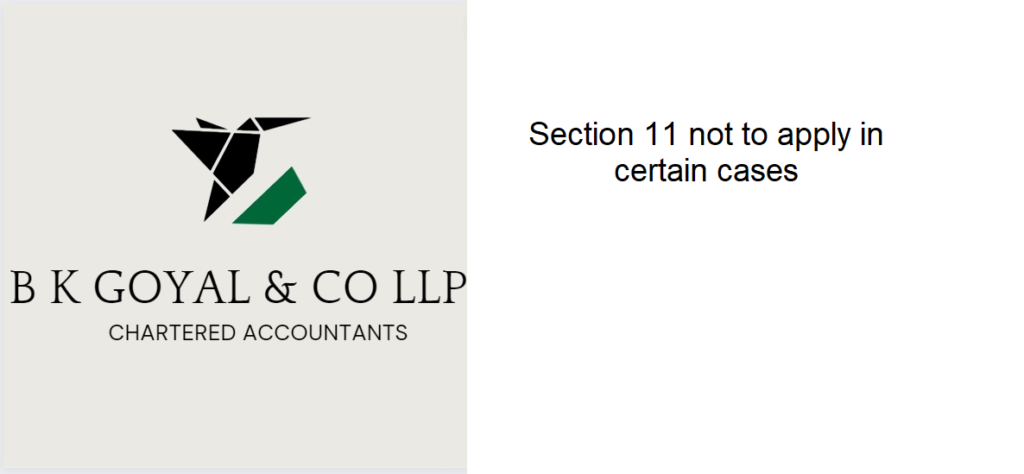“Salary”, “perquisite” and “profits in lieu of salary” defined
When individuals are employed, they expect to be remunerated for their labor. One common form of compensation is a salary, which is the predetermined payment an employee receives for their services. However, in addition to salaries, employers may provide their workers with other benefits such as perquisites (commonly known as perks) and profits in lieu of salary. In this blog, we will define these terms and explore their function. Salary A salary is a fixed amount of money that an employer agrees to pay an employee for their work during a specific period, such as a week, month, or year. Usually, the salary is disbursed at prearranged intervals, such as weekly or monthly, and is determined by the employee’s skills, experience, and the market demand for their work. Perquisites (Perks) Perquisites, or perks, are supplementary benefits offered by employers to their employees in addition to their salary. Perks may include various items such as company cars, stock options, health insurance, or paid vacation time. The objective of providing these benefits is to enhance job satisfaction and retention by offering more than just a salary. Perks may be either taxable or non-taxable, depending on the nature of the perk. For example, an employer-provided car may be taxable, while an employer-paid gym membership may be non-taxable. Employers are required to report all taxable perks on their employees’ Form W-2, which shows their total taxable income for the year. Profits in Lieu of Salary Profits in lieu of salary are another type of compensation that employers may provide to their employees. This form of compensation is separate from an employee’s salary and is usually based on the company’s profits or earnings. For instance, at the end of the year, an employee may receive a bonus based on the company’s profits. Profits in lieu of salary are subject to federal income tax withholding and are also subject to Social Security and Medicare taxes. Conclusion Salary, perks, and profits in lieu of salary are all important components of an employee’s overall compensation package. Understanding these concepts is critical for both employers and employees. Employers must comprehend the tax implications of each type of compensation, while employees need to understand how their compensation is calculated and taxed. A fair and competitive compensation package is essential for retaining top talent and driving business success. section 17 of Income Tax Act, 1961 For the purposes of sections 15 and 16 and of this section,— (1) “salary” includes— (i) wages; (ii) any annuity or pension; (iii) any gratuity; (iv) any fees, commissions, perquisites or profits in lieu of or in addition to any salary or wages; (v) any advance of salary; (va) any payment received by an employee in respect of any period of leave not availed of by him; (vi) the annual accretion to the balance at the credit of an employee participating in a recognised provident fund, to the extent to which it is chargeable to tax under rule 6 of Part A of the Fourth Schedule; (vii) the aggregate of all sums that are comprised in the transferred balance as referred to in sub-rule (2) of rule 11 of Part A of the Fourth Schedule of an employee participating in a recognised provident fund, to the extent to which it is chargeable to tax under sub-rule (4) thereof; and (viii) the contribution made by the Central Government or any other employer in the previous year, to the account of an employee under a pension scheme referred to in section 80CCD; 4(2) “perquisite” includes— (i) the value of rent-free accommodation provided to the assessee by his employer; (ii) the value of any concession in the matter of rent respecting any accommodation provided to the assessee by his employer; Explanation 1.—For the purposes of this sub-clause, concession in the matter of rent shall be deemed to have been provided if,— (a) in a case where an unfurnished accommodation is provided by any employer other than the Central Government or any State Government and— (i) the accommodation is owned by the employer, the value of the accommodation determined at the specified rate in respect of the period during which the said accommodation was occupied by the assessee during the previous year, exceeds the rent recoverable from, or payable by, the assessee; (ii) the accommodation is taken on lease or rent by the employer, the value of the accommodation being the actual amount of lease rental paid or payable by the employer or fifteen per cent of salary, whichever is lower, in respect of the period during which the said accommodation was occupied by the assessee during the previous year, exceeds the rent recoverable from, or payable by, the assessee; (b) in a case where a furnished accommodation is provided by the Central Government or any State Government, the licence fee determined by the Central Government or any State Government in respect of the accommodation in accordance with the rules framed by such Government as increased by the value of furniture and fixtures in respect of the period during which the said accommodation was occupied by the assessee during the previous year, exceeds the aggregate of the rent recoverable from, or payable by, the assessee and any charges paid or payable for the furniture and fixtures by the assessee; (c) in a case where a furnished accommodation is provided by an employer other than the Central Government or any State Government and— (i) the accommodation is owned by the employer, the value of the accommodation determined under sub-clause (i) of clause (a) as increased by the value of the furniture and fixtures in respect of the period during which the said accommodation was occupied by the assessee during the previous year, exceeds the rent recoverable from, or payable by, the assessee; (ii) the accommodation is taken on lease or rent by the employer, the value of the accommodation determined under sub-clause (ii) of clause (a) as increased by the value of the furniture and fixtures in respect of the period during which the
“Salary”, “perquisite” and “profits in lieu of salary” defined Read More »









